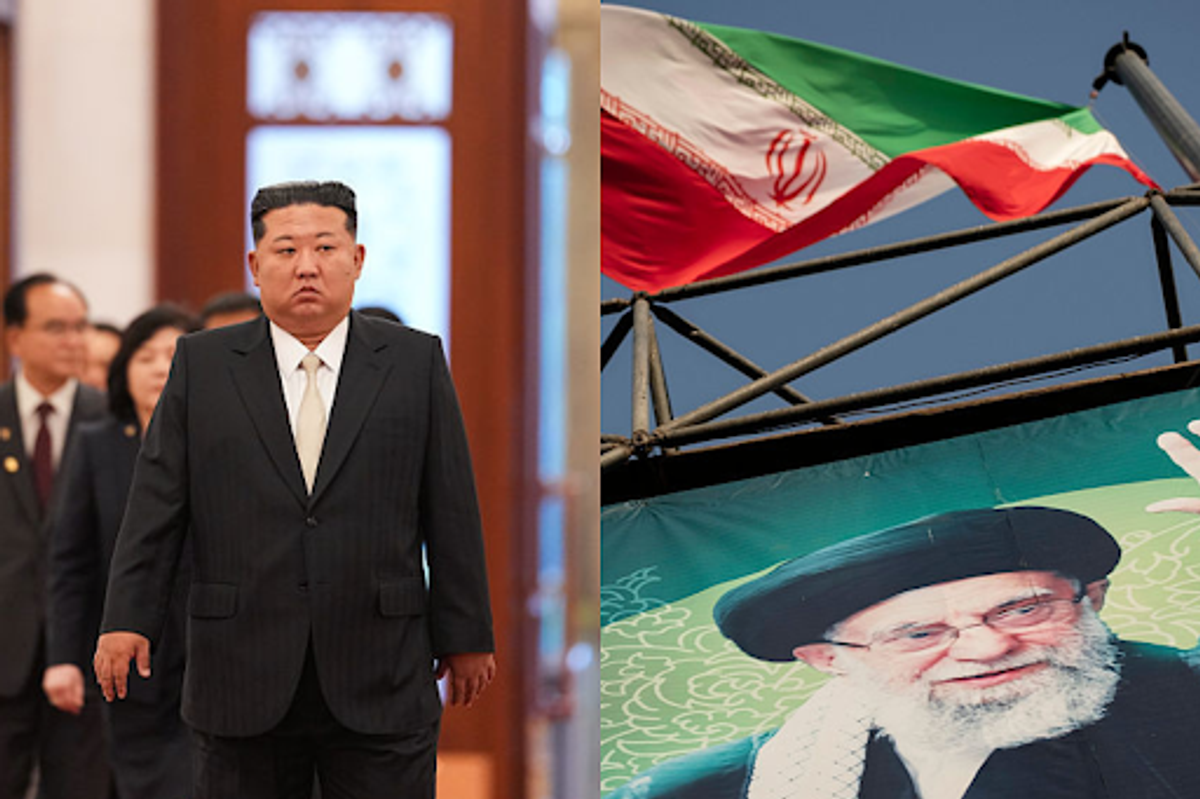OPINION — The absence of any diplomatic engagement with North Korea during the past four years has resulted in a more belligerent North Korea, now more aligned with Russia and China. Those who disagree will say we tried, but in fact we have ignored North Korea, hoping that a policy of “containment and deterrence” would suffice. Well, it hasn’t.
The Korean War Armistice of July 1953 succeeded in halting hostilities on the Korean Peninsula, after three years of bloody conflict with significant casualties. The goal was an eventual peace treaty to end the war and bring peace to the Peninsula and stability to the region. We are now farther away from this goal than at any time during the past 72 years. In fact, we are closer to conflict on the Korean Peninsula than at any time since the signing of the Armistice.
In the past four years, North Korea's Kim Jong Un has declared South Korea and the U.S. as principal enemies in their constitution, a significant change and a formal rejection peaceful reunification. He has increased the production of nuclear and hypersonic weapons and developed a significant ballistic missile capability, with short, intermediate, and intercontinental-range ballistic missiles (ICBMs), including a mobile, solid-fuel ICBM (Hwasong/19) capable of targeting the entire U.S. Additionally, North Korea's alignment with Russia includes a mutual defense treaty obligating each nation to defend the other in times of conflict.
In the clearest practical expression of that cooperation, there are more than 12,000 North Korean troops in the Kursk region of Russia. Ukrainian President Volodymyr Zelenskyy just said that an additional 25,000 North Korean troops are expected to be sent to Russia to assist with the Kremlin;s war in Ukraine. This is in addition to the munitions, missiles and artillery North Korea is providing to Russia. In return, North Korea is likely receiving assistance with its satellite and missile programs, in addition to energy and agricultural assistance. A car bridge is under construction across the Tumen River that will boost trade and tourism from Russia to North Korea. In short, North Korea’s allied relationship with Russia is deep and comprehensive.
Of course, North Korea continues to have China as its principal ally – an ally that supplies North Korea with crude oil, petroleum products, and 90% of its trade, all of which is essential for sustaining a weak and vulnerable economy. China and Russia, by exercising their veto power, have also prevented the United Nations Security Council from imposing sanctions on North Korea for its violations of Security Council resolutions that prohibit missile launches and nuclear tests.
Everyone needs a good nightcap. Ours happens to come in the form of a M-F newsletter that provides the best way to unwind while staying up to speed on national security. (And this Nightcap promises no hangover or weight gain.) Sign up today.
A better way?
It's a long list of problems. But we should not give up on North Korea. Indeed, we should stop ceding the playing field to Russia and China, and engage constructively with North Korea. President Donald Trump has a personal relationship with Kim Jong Un that will permit the U.S. to have at least a few senior-level meetings, not necessarily with Messrs. Trump and Kim, to determine if there is value in continuing the dialogue. Last week Trump suggested that a better U.S.-North Korean relationship is in the offing. “We will have relations with North Korea,” the president said, after a meeting with Japan’s Prime Minister Shigeru Ishiba.
North Korea will see value in having a meaningful dialogue with the U.S. if they realize they’re dealing with a Trump administration that is bold and flexible. Negotiating with North Korea using the same playbook we’ve been using for the past thirty years won’t work – we saw this at the Hanoi Summit during President Trump’s first term. Mr. Kim is interested in a peace treaty to end the Korean War, security assurances, economic development assistance, the provision of light water reactors, the lifting of sanctions and a path to normal diplomatic relations with the U.S. He knows what we want: complete and verifiable denuclearization. Indeed, we should state that this is our goal, but pivot to the current reality that North Korea may be willing to halt their nuclear weapons program but clearly will not agree to complete and verifiable denuclearization at this time. That does not mean, however, that we cease making this our long-term goal, while seeking to get North Korea to halt nuclear tests, missile launches and the production of fissile material for nuclear weapons. This would be an action-for-action process, like the agreement we had with North Korea in the Six Party Talks.
Engaging boldly and flexibly now with North Korea would get the attention of Russia and China. Those two U.S. adversaries would no doubt be concerned that North Korea might prefer a normal relationship with the U.S. rather than an alliance with the North’s two neighbors.
This column by Cipher Brief Expert Ambassador Joseph DeTrani was first published in The Washington Times
Read more expert-driven national security insights, perspective and analysis in The Cipher Brief










